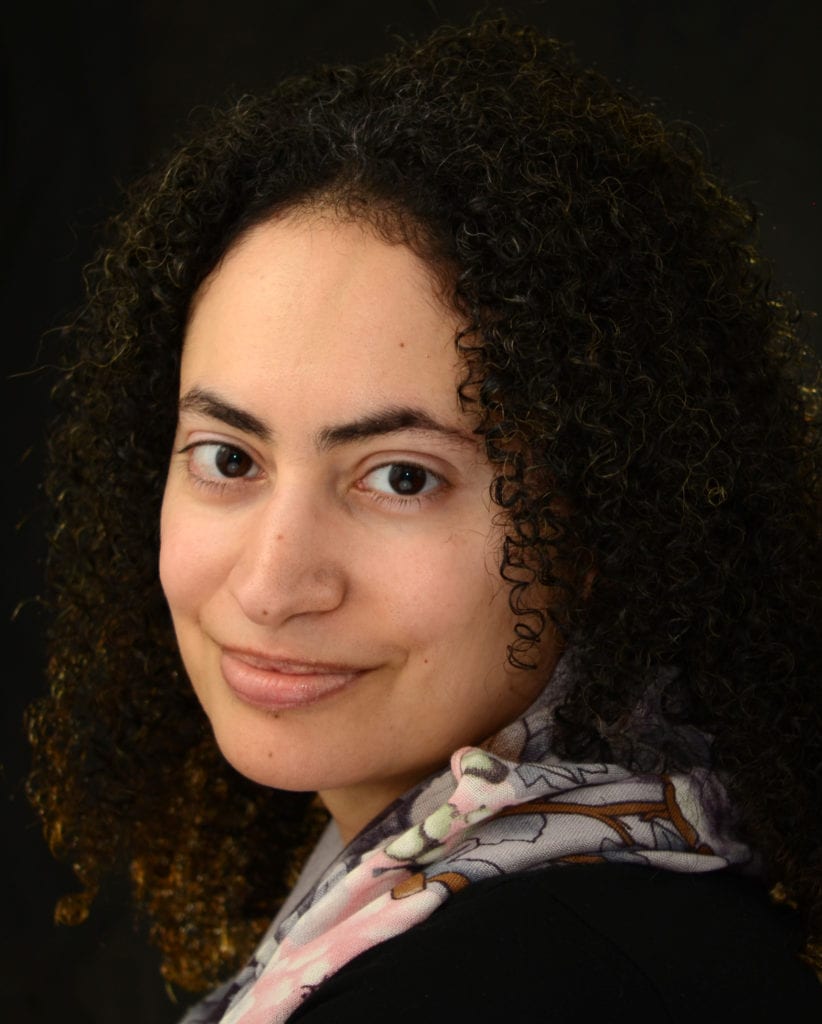
As a nonclinical option, medical writing often gets a bad rap in terms of what you can make. While it is true that the average compensation is lower than many of the other nonclinical careers, there are ways to make it more lucrative.
Today, I’m excited to introduce Dr. Yasmine Ali to you, a cardiologist who works full-time as a freelance writer and medical consultant. In this interview she shares great tips on how to get started as a medical writer and reveals how she’s able to command higher than average rates for her writing.
Let’s dive in!
How did you get into medical writing?
I have always been a writer, so when I went to medical school, medical writing was a natural extension of that. I began writing clinical research manuscripts and review articles during my first year of medical school, and that has continued ever since (20+ years now!). I was also writing IRB consent documents and clinical trial protocols at that time.
What kind of writing do you do?
I do or have done nearly everything across the medical writing spectrum—regulatory writing, CME writing and content, CME needs assessments and grants, clinical guidelines, manuscripts and abstracts, slide decks, industry white papers, health blogging, thought leadership pieces, consumer health articles, and more.
I also do creative writing, most of which is medically-themed: poetry, essays, narrative nonfiction, and even a novel! I am now happy to report that I am represented by a literary agent for my book-in-progress, a narrative history of the Waverly Train Disaster of 1978.
How do you find your new jobs and projects?
Network, network, network! That and in-depth online searches. Networking can be done live (at meetings), but I have actually found most of my clients online, either by organic searches or by social media networking through LinkedIn and Twitter, and through online membership directories (such as my freelance listing in the American Medical Writers Association directory).
What can you tell us about compensation?
This can vary wildly, but is higher for physicians than for other medical writers. It also varies by project and client type. Medical review board work for consumer-health sites (where they need an MD to review consumer-health articles for medical accuracy) can be around $150/hr, but work for large global healthcare companies and pharma can pay up to $300/hr or even more sometimes. Specialty and experience also matter—I am a cardiologist with 20+ years of medical writing experience, and thus I can now command higher rates than average.
Another example of rates are project rates. A needs assessment (to obtain sponsorship for a CME course) may pay $800 – $1,000, for instance, while other projects will pay differently. Other rates may be per-word or per-article. A high-end health blogging rate that is often quoted is $1/word, but again, that varies based on client, audience, and experience.
A good source to get an idea of compensation for medical writing is AMWA’s Compensation Survey.
Medical writing tends to have lower compensation than other nonclinical areas. How have you made it more lucrative, besides your experience and specialty?
Persistence, networking, and constant marketing and searching for new opportunities. I also don’t settle for lower rates at this point in my career.
What advice do you have for physicians wanting to get into freelance medical writing?
Don’t quit your day job! It is hard to make a full-time salary as a freelance medical writer at first. If you’ve got an eye toward eventually becoming a freelance medical writer, begin with side gigs or as a full- or part-time employee for a medical writing, regulatory, or medical communications agency. That will allow you to gain the necessary experience while not panicking about income.
What advice do you have for physicians wanting to be employed by a medical writing company?
Since most of these jobs can be done remotely, find out if that is the case with the company you’re interested in working for. If so, find out how much travel is involved (sometimes jobs are advertised as “remote,” but actually require 50% or more travel) and decide whether or not you’re okay with the percentage. Also be sure you’re being well compensated as a physician for your skills and experience, what you bring to the table as a clinician. And always negotiate your salary—rarely, if ever, should you accept the first number offered.
What are the traits of a successful medical writer?
Being an introvert or at least being okay with working alone and independently helps a great deal, because that is how you will spend most of your time. While there may be phone calls and project meetings, a lot of the writing has to be done on your own, by you, and you need to be okay with that. Good time management skills are also essential, because there is usually a great deal of autonomy that goes along with being a medical writer, and you need to know how to use your time wisely to meet required deadlines.
What do you like the best about the medical writing that you do?
I love the writing itself, first and last of all. And I love the autonomy and the freedom to work on my own, in charge of my own schedule and my own business.
I also love the educational aspect of it: the ability to educate large numbers of people through my writing, whether they be major corporations, fellow physicians, or members of the public at large. That is something you just can’t do one-on-one in a patient room.
What are the biggest challenges with your medical writing work?
Continuing to find high-paying clients. As a freelancer, you have to accept that you will be spending time each day doing marketing and outreach.
Does your specialty make a big difference in finding opportunities?
Oncology and immunology are very hot specialties right now, very in demand across the medical writing spectrum. Cardiology continues to be a sought-after specialty. There are also opportunities for endocrinologists, particularly in the areas of diabetes or rare endocrine disorders. Ob/gyn’s are often called upon to be medical reviewers for regulatory documents as well as online consumer-health content, and general practitioners (internists, family medicine doctors, and pediatricians) are always needed by consumer-health sites, either to write or to review their content. Surgical specialties, including general surgery, are needed in much the same way; orthopedic surgeons seem to be in great demand right now for medical-device companies and clinical guidelines writing.
In your opinion, what are the biggest mistakes aspiring freelance medical writers make?
Going freelance too soon. It may take 2-3 years of working side gigs or working part-time or even full-time with a medical writing company before you’re ready to open your own freelance medical writing business. And when you do, be sure to put in place all the things that go along with having your own business: consulting an accountant, getting errors and omissions (business liability) insurance, setting up a business bank account and credit card, setting up an LLC if you think that’s right for you, etc.
Do you think there’s a growing need for physician writers?
Absolutely. Physicians have so much to offer in terms of their clinical experiences and medical acumen and training that other medical writers simply don’t. When you seek medical writing jobs or opportunities, be sure to emphasize your clinical experience as a physician and how that brings something unique to the table.
What are some steps an aspiring medical writer could take right now?
- Visit the AMWA site and learn all about the different kinds of medical writing in their “Ultimate Guide to Becoming a Medical Writer”
- Put together a portfolio of any and all writing you have done, even in college and medical school–research papers, grants, peer-reviewed manuscripts and reviews, blog posts, clinical study protocols, IRB consent forms, medical journalism, anything. Often physicians will find they have more experience than they realized.
- Get active on LinkedIn and connect with other medical writers; model your profile after the ones you like best.
- Do a job search on LinkedIn using the terms “medical writing” and “medical writer.” That will give you an idea of what opportunities are out there and what companies are looking for, and you can tailor your skills accordingly.
- Look into a medical writing apprenticeship.
I do not recommend that physicians get “certified” as medical writers, because their MD/DO is credential enough. The Medical Writer Certification is generally meant for those with non-science degrees or Master’s Degrees (not doctorates).
A big thank you to Dr. Ali for her very informative interview.
Dr. Ali offers consultations for a modest fee to those interested in how to get started as a medical writer. You can reach her via email at dr.y2001@outlook.com, on LinkedIn , or on Twitter @Yasmine_AliMD.
Latest Posts
Find what you're looking for:
Popular Categories:
Career Change | Career Enhancement | Job Search | Personal Development
5 Comments
Leave a Comment























I tried to get into medical writing a few years back and found it nearly impossible. I networked, attended all the meetings, and even did land a job briefly at a place that unfortunately went bankrupt within the year. I was never able to get another job in the industry. There is pretty much nobody who wants to spend the time training you if you’re new at it (and I had even completed the AMWA course).
Lynn, that sounds like a very discouraging experience, to say the least. I’m really sorry about what happened. You obviously put in a lot of time and effort. I know some people have had luck doing Emma Nichol’s course because she gives them actual freelance projects since she is a subcontractor. After students graduate, she may continue to refer work to them if she feels they are a good fit. You are right that it can be hard to get that first job to get the training you often need. It would be great if there were opportunities for “internships” to learn the skills. I know that some physicians would be willing to accept a modest stipend to be able to learn the skills they need to get these writing jobs, whether in regulatory, CME, health news, or other kinds of writing. Thank you for sharing. It is important for people to hear about different experiences with pursuing medical writing.
Are there any recommendations on how a non physician or nurse can break into the field? As a previous poster mentioned, it seems impossible to gain any real experience in medical writing and seems hopeless for someone who is not already a doctor. Thank you.
Shameka, thanks so much for reaching out. There are actually more non-physician medical writers than there are physician writers! I would recommend this online introductory course on medical writing. It is $115 US dollars. https://www.ed2go.com/cgsce/online-courses/explore-career-in-medical-writing/
This will give you a lot of great resources to explore. Wishing you all the best!
I’ve used https://99papers.com/ 99 papers several times now, and it’s always been a reliable resource when I need help with my essays. I was first introduced to them through a recommendation, and I’m so glad I gave them a try. They offer a range of writing services, and the pricing structure is very fair. If you need quick, affordable help, I highly recommend checking them out.